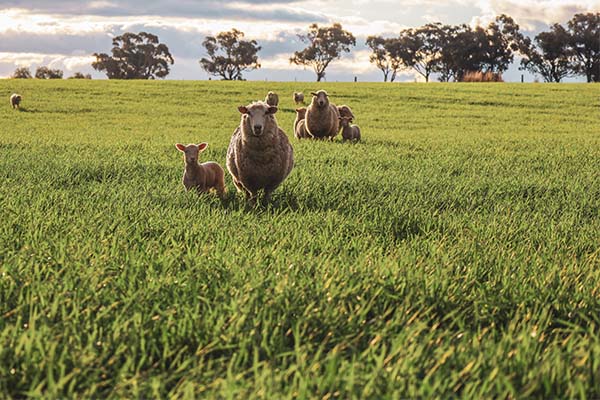Livestock producers across key areas are confronting a particularly tough season in 2025. Elders livestock production advisor David Trengove provides his advice on navigating the dry conditions.

A combination of dry conditions, limited pasture growth, and fodder shortages has necessitated strategic management decisions to maintain herd health and productivity.
Pasture deficits and fodder shortages
The autumn period was marked by below-average rainfall, leading to minimal pasture establishment and growth. This has resulted in a significant feed deficit as winter progresses. Compounding the issue, southern NSW, which is traditionally a source of supplementary fodder, has also experienced poor seasonal conditions. This has lead to reduced hay and silage availability. Producers are facing increased competition and higher prices for limited feed resources.
Impacts on livestock management
The feed scarcity has prompted many producers to implement early weaning strategies to alleviate nutritional demands on breeding stock. Confinement feeding has also become more prevalent, allowing for controlled feeding and pasture preservation. These measures require careful planning and resource allocation however, particularly given the limited availability of supplementary feeds.
Additionally, the dry conditions have hindered the establishment of winter forage crops, further limiting feed options. Producers are exploring alternative feed sources and adjusting rations to meet livestock nutritional requirements.
Recent severe frost events have posed additional challenges, particularly for newborn lambs and calves. These conditions have necessitated increased vigilance and proactive management to safeguard livestock during critical periods.
Strategic planning and adaptation
In response to these challenges, producers are focusing on strategic planning and adaptive management practices. Key strategies include:
- Early weaning: Reducing the nutritional demands on breeding stock by weaning calves and lambs earlier than usual.
- Confinement feeding: Managing livestock in designated areas to control feed intake and minimize pasture degradation.
- Supplementary feeding: Utilizing alternative feed sources to meet the nutritional needs of livestock when pasture is insufficient.
- Monitoring and planning: Regularly assessing pasture conditions and adjusting management plans accordingly to ensure the sustainability of livestock operations.
These measures, while resource-intensive, are critical for maintaining livestock health and preparing for future seasons.
Looking ahead
While the seasonal outlook remains uncertain, the resilience and adaptability of producers across Central West NSW is evident. By employing strategic management practices and remaining responsive to changing conditions, producers can mitigate the impacts of adverse weather and maintain the health and productivity of their herds.
Disclaimer - important, please read:
The information contained in this article is given for general information purposes only, current at the time of first publication, and does not constitute professional advice. The article has been independently created by a human author using some degree of creativity through consultation with various third-party sources. Third party information has been sourced from means which Elders consider to be reliable. However, Elders has not independently verified the information and cannot guarantee its accuracy. Links or references to third party sources are provided for convenience only and do not constitute endorsement of material by third parties or any associated product or service offering. While Elders has exercised reasonable care, skill and diligence in preparation of this article, many factors including environmental/seasonal factors and market conditions can impact its accuracy and currency. The information should not be relied upon under any circumstances and, to the extent permitted by law, Elders disclaim liability for any loss or damage arising out of any reliance upon the information contained in this article. If you would like to speak to someone for tailored advice specific to your circumstances relating to any of the matters referred to in this article, please contact Elders.
